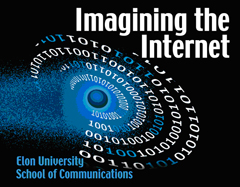Eine spannende Studienreihe über Trends und Prognosen zur zukünftigen Nutzung des Internets mit interessanten Themenbereichen, wie z.B. Mobile Payment, Web 3.0, Generation Y und mehr.
Hintergrund
Das Pew Research Centerund die Elon University führen seit über zehn Jahren eine gemeinsame Studienreihe zur Zukunft des Internets durch, deren Ergebnisse in interessanten Ei8nzelstudien veröffentlicht werden.
https://://www.youtube.com/watch?v=-MaPyxD0CyY&feature=colike
Aktuelle Ergebnisse
Die aktuelle Studie von 2012 beschäftigt sich mit folgenden acht Themen und Fragestellungen:
Getting into the gamification?
Will the use of game mechanics, feedback loops, and rewards to spur interaction and boost engagement, loyalty, fun, or learning begin to play a role in some way in the everyday activities of most of the people who are actively using communications networks?
The fate of „smart systems“:
Will the connected household in 2020 be a model of efficiency in which people are able to manage consumption of electricity, water, food, bandwidth to work to save money and be envinonmentally sustainable? Or are there too many hurdles for such approaches to be widely adopted by many people liviing in connected homes?
Corporate responsibility: Which road will be taken?
By 2020, will technology firms take more or less responsibility to protect individual citizens and human rights? Will they tend to make decisions mostly based on profit motives and pleasing those in power, even filtering and editing their services on behalf of the worlds‘ authoritarian regimes?
Influence of „Big Data“ and the Internet of Things:
Will human and machine analysis of large data sets and the rollout of sensors and more IP-enabled objects be a boon to our social, political, and economic intelligence by 2020, or will the rise of Big Data become a big negative for society?
Will higher education change?
Will we see mass adoption of teleconferencing and online learning to leverage expert resources, individualized-learning, hybrid courses with online and in-person elements, and new assessments of learning and other customization of the educational experience that take individually-oriented outcomes into account? Or will we not see much evolution and mostly the „traditional“ approach in 2020?
What is the likely future of Generation Always-On by 2020?
Experts say the next generation of young people to follow the teens-to-20s youth now known as the Millennial generation will benefit and suffer from their ‚always-on‘ lives, from their amazing ability to juggle many tasks to their thirst for instant gratification. The survey reveals people’s thoughts, their hopes and their fears.
What is the potential future of the Web and the mobile apps revolution by 2020?
In 2010 Wired magazine projected the possible decline of the World Wide Web due to apps‘ ascendance in a cover story dramatically headlined The Web Is Dead. Experts responding to this survey say the Web will be alive and well in 2020. They expect the Web and apps to converge in the cloud, with positive and negative results. They say simplicity for users will come at a cost and that efforts to monetize online interactions will continue to create bottlenecks and possibly significantly reduce open access to knowledge.
What is the potential future of monetary transactions?
What IS your ‚wallet‘ in 2020? Will the infrastructure be built out and will society have embraced the use of smart-device swiping, nearly eliminating the need for cash or credit cards? Or will the new technological approaches to monetary exchange lead to a dead-end or possibly a different innovation? Stakeholders surveyed say mobile devices are the future of money and most 2020 smartphones are likely to be e-wallets that automatically access „cash“ in the cloud. Some experts say the financial industry will slow the trend significantly.
Quelle: Imagining the Internet
Hier der link zum aktuellen Teil der Studie „Imagining the Internet 2012“. Dort finden Sie u.a. weitergehende links zum Download der Ergebnisse.



